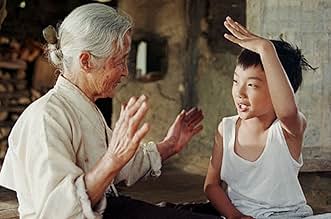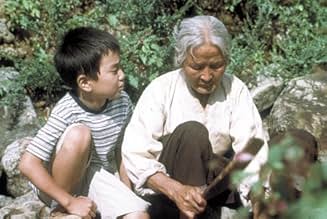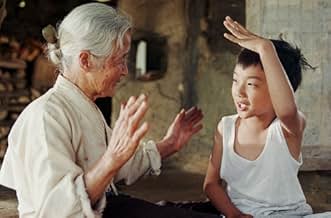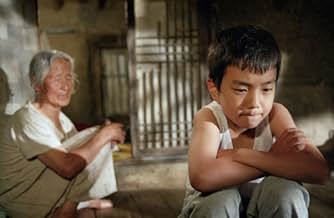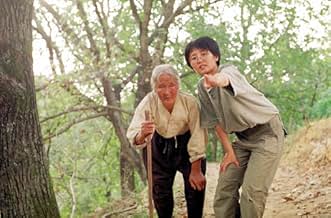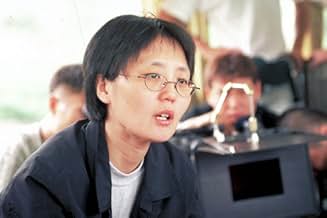I've not seen anyone depict better the bittersweet relationship between a spoiled child and his patient grandmother than Korean director Lee Jeong-Hyang's ` The Way Home.' Nothing spectacular happens during seven-year-old Sang-woo's visit to grandmother's home in a rural village after his single mother drops him off. Changes occur, albeit predictably; the glory is in the small matters that will matter much to the boy as he matures long after the visit.
Why won't this film make it big if I like it so much? Well, the kid kills no one, smokes nothing, and speaks in child language, so audiences might just yawn. Additionally, the boy is a poor actor who hasn't been directed well. But grandma, now there is an actress. Kim Eul-boon was discovered in her native village, 78 years old and never seen a movie! Hunched over, skin leathery and crinkled, expressions minimalist, she embodies the infirmities of old age and the resolution of a tough spirit to care for herself and other ancient neighbors to the last breath. Her grandson, abusive and self-centered, is just another person to care for who she knows is worth saving, in unconditional love probably unacceptable to aggressive Americans.
When grandson plays with neighbor kids, he learns about the life's dangers by experiencing the menacing bull regularly chasing them down a particular stretch of necessary road. When he longs for the companionship of a neighbor girl, he learns you have to work at love. When he looks for grandma's love, he finds it in her smallest gestures, like buying and cooking him a chicken she thinks he wants when all he really wants is KFC.
And so this country life goes on with the boy erratically moving from resentment to love and back again in an endlessly ambivalent cycle. The batteries he uses up for his electronic games serve as metaphor for his city life's wasteful and empty energy.
The semi-modern buses coming to and from the market also serve as emblems of the tenuous relationship between city and province, grandmother and daughter, grandmother and grandson. So real is the slow and unglamorous rural life that you know Hyang has understood accurately that life and love are served slowly through its minor moments.
I guarantee you will never forget the charismatic grandmother outfitted as a lowly peasant-she is a survivor and one hell of an actress. The film is dedicated to all grandmothers. `Here's looking at you, Kid.'



